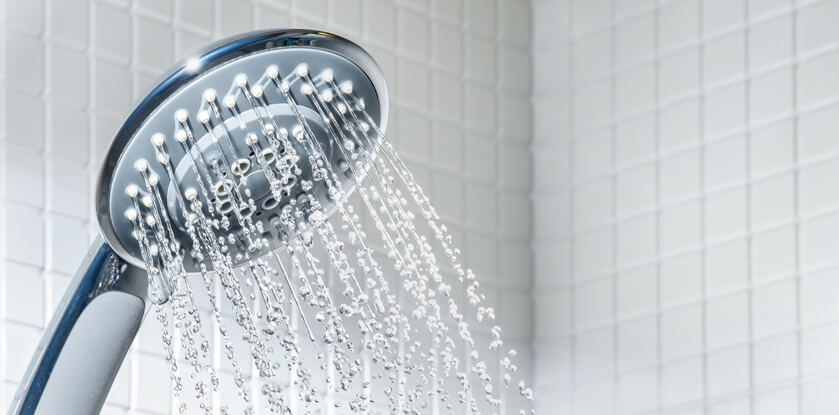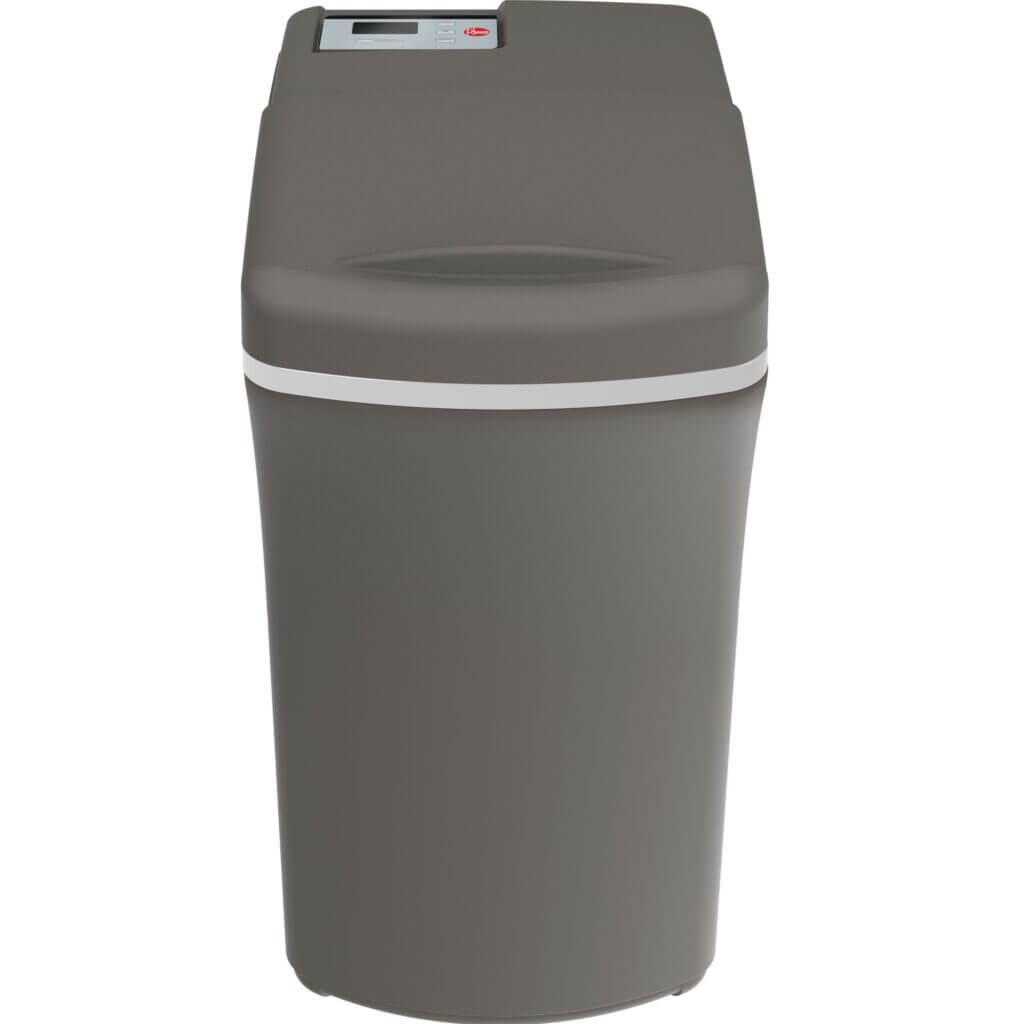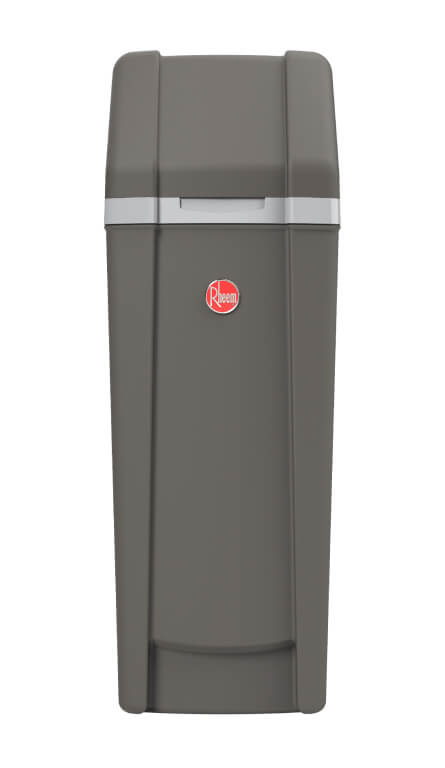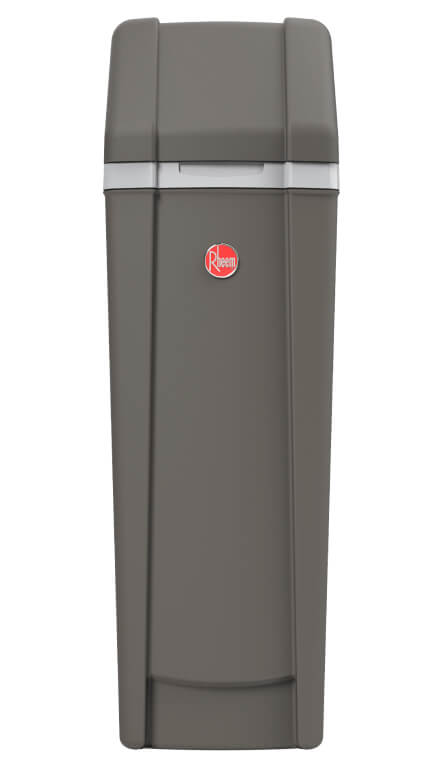

Water Treatment

Average Cost: $375 - $600
Rheem offers some of the most reliable and advanced water softening solutions, with a small range of models to suit different budgets and home sizes. These affordable systems offer durability and efficiency, making them a solid choice for homeowners seeking a premium water treatment solution.
Rheem is a trusted name in water heating and treatment systems. Over the years, the company has expanded its expertise beyond boilers and HVAC products to include water softeners and water heating solutions. Today, as a leader in innovation, Rheem stands out for its focus on energy efficiency, smart technology, and sustainable water management solutions.

The brand’s latest water softeners use Rheem Learning Technology — a smart system that adapts to your household’s water use. As a result, the system conserves salt and water while maintaining consistent performance. All models are Wi-Fi-enabled, allowing you to monitor your system remotely.
Before making a decision, it’s helpful to know what sets Rheem softeners apart — and where they might fall short. Here’s a quick overview:
Rheem’s water softeners are designed for households of all sizes and operate using traditional ion exchange technology. With this process, they remove hard minerals, improve water quality, and extend the lifespan of your appliances. Plus, smart monitoring and automatic optimization make them easy to manage.
Rheem’s salt-based softeners replace hard minerals with sodium ions through a tried-and-true ion exchange process. Each model includes automatic regeneration and programmable settings for efficient operation and minimal user input.
All Rheem softeners are Wi-Fi–enabled, allowing you to monitor water usage, track salt levels, and receive alerts through your mobile device. In addition, Rheem Learning Technology fine-tunes the regeneration cycle based on your household’s water habits, reducing salt and water waste by up to 40%.
Rheem estimates that its systems can pay for themselves within two to three years. For example, by reducing water heater energy use by up to 24% and improving appliance efficiency, homeowners can save as much as $558 per year. Plus, these systems operate with extremely low ongoing electricity and water costs — about $15 per year combined.
Rheem backs its softeners with a robust warranty program:
Rheem offers four core water softener models, all sold exclusively through Home Depot. Pricing varies depending on capacity, features, and household size.
Perfect for smaller households (up to four people). The compact design fits tight spaces while maintaining strong performance and smart optimization.

Designed for medium homes, this system includes Rheem Learning Technology, a low-salt monitor, and customizable regeneration cycles.

The high-end models offer enhanced features for larger households. The Plus™ includes a built-in sediment filter and illuminated tank light, while the Platinum™ adds Wi-Fi connectivity, a remote shutoff, and advanced salt optimization.

» Related: How Much Does It Cost to Install a Water Softener?
Beyond softer water, there are several benefits to owning a Rheem system, including:

When choosing a water softener, it’s important to compare Rheem with other leading brands.
For instance, Culligan, founded in 1936, is one of the most recognized names in water treatment. While Rheem’s models range from $375 to $600, Culligan’s softeners cost between $500 and $2,500 and include both salt-based and salt-free options. Culligan also offers more customization but at a higher price point.
» Read More: Culligan Water Softener Review
Similarly, Whirlpool, another popular brand, has water softeners priced between $400 and $1,500. Like Culligan, Whirlpool offers salt-free alternatives and a wider range of options than Rheem. However, Rheem systems tend to be more affordable while still including smart connectivity and efficient regeneration cycles.
On the other hand, Fleck, known for its durability, offers systems ranging from $600 to $1,600. Fleck models are known for longevity and performance but lack the smart features that make Rheem’s systems easier to manage. Rheem’s advantage lies in its lower entry price and user-friendly design, even if Fleck has a broader product line.
» See Our Top Picks: Best Water Softener Brands of 2025
In short, Rheem’s water softeners balance affordability, reliability, and modern smart technology — an excellent value for most households dealing with hard water issues.
Overall, for homeowners who want a dependable, efficient, and intelligent system, Rheem water softeners are a strong choice. They provide consistent performance, cost savings, and advanced monitoring features without the high price tag of some competitors. However, if you prefer a salt-free or fully customizable system, you may want to explore other brands like Whirlpool or Culligan.
Does Rheem make salt-free softeners?
No. All Rheem models are salt-based and use ion exchange technology.
Where can I buy a Rheem water softener?
Rheem softeners are available exclusively at Home Depot and authorized retailers.
What is Rheem Learning Technology?
It’s a smart system that adjusts regeneration cycles based on your water usage, saving water and salt.
Can I install a Rheem softener myself?
Yes. Each unit includes a DIY kit, though professional installation is recommended for the best results.
Read real homeowner reviews, explore qualifications, and view promotions. Modernize makes it easy to browse professionals and find one that will be perfect for your project.